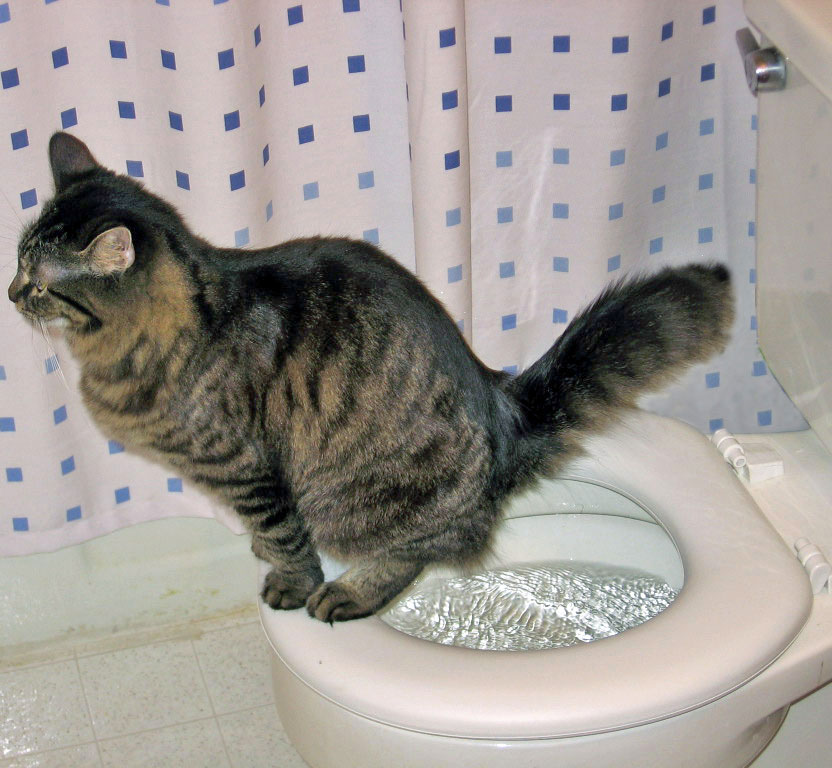Don't Flush Cat Poop Down Your Toilet - Maintain Your Home's Pipe System
Don't Flush Cat Poop Down Your Toilet - Maintain Your Home's Pipe System
Blog Article
Have you been hunting for information Don’t flush cat feces down the toilet?

Introduction
As cat proprietors, it's necessary to be mindful of how we get rid of our feline friends' waste. While it might seem convenient to purge feline poop down the commode, this technique can have damaging repercussions for both the setting and human wellness.
Alternatives to Flushing
The good news is, there are much safer and much more liable ways to take care of feline poop. Take into consideration the complying with choices:
1. Scoop and Dispose in Trash
The most usual method of taking care of pet cat poop is to scoop it into a biodegradable bag and toss it in the trash. Be sure to use a committed trash inside story and throw away the waste immediately.
2. Usage Biodegradable Litter
Select naturally degradable feline litter made from products such as corn or wheat. These trashes are environmentally friendly and can be securely disposed of in the garbage.
3. Bury in the Yard
If you have a backyard, think about burying feline waste in a designated area far from vegetable gardens and water resources. Make certain to dig deep enough to avoid contamination of groundwater.
4. Install a Pet Waste Disposal System
Invest in a family pet garbage disposal system specifically developed for pet cat waste. These systems use enzymes to break down the waste, decreasing smell and ecological influence.
Health Risks
Along with ecological concerns, purging pet cat waste can additionally pose health threats to humans. Pet cat feces may include Toxoplasma gondii, a bloodsucker that can trigger toxoplasmosis-- a possibly extreme ailment, specifically for pregnant women and individuals with weakened immune systems.
Environmental Impact
Flushing cat poop presents damaging virus and bloodsuckers right into the water system, posturing a substantial threat to marine ecological communities. These impurities can negatively impact aquatic life and concession water high quality.
Verdict
Liable pet dog possession prolongs beyond supplying food and sanctuary-- it additionally entails appropriate waste management. By avoiding purging feline poop down the commode and opting for alternate disposal methods, we can minimize our ecological footprint and safeguard human health and wellness.
Why Can’t I Flush Cat Poop?
It Spreads a Parasite
Cats are frequently infected with a parasite called toxoplasma gondii. The parasite causes an infection called toxoplasmosis. It is usually harmless to cats. The parasite only uses cat poop as a host for its eggs. Otherwise, the cat’s immune system usually keeps the infection at low enough levels to maintain its own health. But it does not stop the develop of eggs. These eggs are tiny and surprisingly tough. They may survive for a year before they begin to grow. But that’s the problem.
Our wastewater system is not designed to deal with toxoplasmosis eggs. Instead, most eggs will flush from your toilet into sewers and wastewater management plants. After the sewage is treated for many other harmful things in it, it is typically released into local rivers, lakes, or oceans. Here, the toxoplasmosis eggs can find new hosts, including starfish, crabs, otters, and many other wildlife. For many, this is a significant risk to their health. Toxoplasmosis can also end up infecting water sources that are important for agriculture, which means our deer, pigs, and sheep can get infected too.
Is There Risk to Humans?
There can be a risk to human life from flushing cat poop down the toilet. If you do so, the parasites from your cat’s poop can end up in shellfish, game animals, or livestock. If this meat is then served raw or undercooked, the people who eat it can get sick.
In fact, according to the CDC, 40 million people in the United States are infected with toxoplasma gondii. They get it from exposure to infected seafood, or from some kind of cat poop contamination, like drinking from a stream that is contaminated or touching anything that has come into contact with cat poop. That includes just cleaning a cat litter box.
Most people who get infected with these parasites will not develop any symptoms. However, for pregnant women or for those with compromised immune systems, the parasite can cause severe health problems.
How to Handle Cat Poop
The best way to handle cat poop is actually to clean the box more often. The eggs that the parasite sheds will not become active until one to five days after the cat poops. That means that if you clean daily, you’re much less likely to come into direct contact with infectious eggs.
That said, always dispose of cat poop in the garbage and not down the toilet. Wash your hands before and after you clean the litter box, and bring the bag of poop right outside to your garbage bins.
https://trenchlesssolutionsusa.com/why-cant-i-flush-cat-poop/

Do you appreciate reading about Don’t flush cat feces down the toilet? Give feedback down the page. We would be interested to listen to your suggestions about this blog entry. We are looking forward to see you back again later on. You should take the opportunity to share this blog posting if you enjoyed reading it. Thank you for taking the time to read it.
Book-Now Report this page